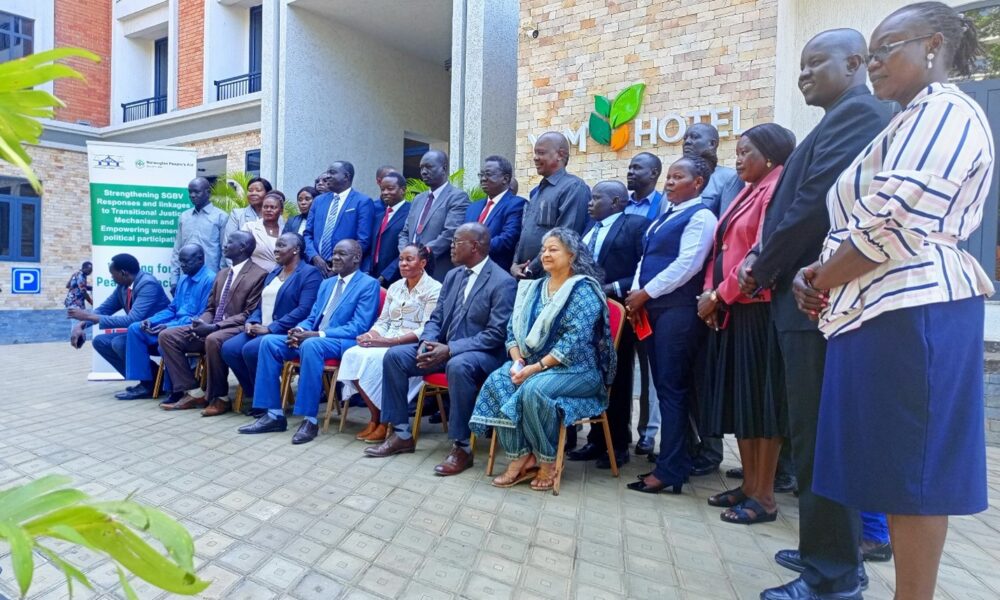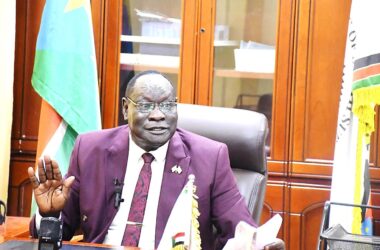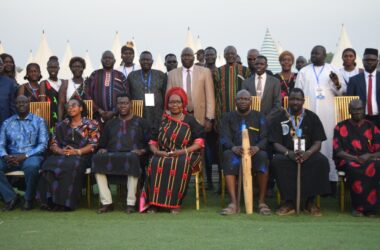By Alan Clement
Judges and magistrates across South Sudan have convened for a specialized training on gender-based violence (GBV), sexual and gender-based violence (SGBV), and conflict-related sexual violence (CRSV), with a strong focus on transitional justice.
The three-day workshop, organized by the Center for Inclusive Governance, Peace and Justice with support from Norwegian People’s Aid and the government of Norway, is aimed at strengthening judicial capacity to prosecute and adjudicate GBV cases while prioritizing survivors’ rights and dignity.
The training themed “A Survivor-Centered Approach to Transitional Justice: Nothing for Survivors Without the Survivors,” is intended to equip judicial officers with practical tools for managing GBV cases, including documentation, psychological support systems, and survivor-sensitive case handling as well as integrating transitional justice mechanisms outlined in Chapter Five of the Revitalized Peace Agreement.
Speaking at the opening of the training, Sheila B. Keetharuth, UNMISS Senior Women’s Protection Adviser, emphasized the importance of trauma-informed judicial processes. “Survivors of wartime sexual violence continue to face stigma, trauma, and barriers to justice. Courts must adopt a survivor-centered approach,” she said, referencing UN-developed model legislative provisions and a CRSV Prevention Framework as critical guides for prosecutions and protection of victims, including children born of rape.
Justice William Kaya Pacifico, Director of Training in the Judiciary of South Sudan, acknowledged delays in organizing the workshop due to recent judicial deployments but reaffirmed the judiciary’s commitment to reform. “The new leadership is very keen on training judges. We are developing a national training policy, endorsed by the Chief Justice, to ensure justice reaches beyond Juba,” he stated.
“Justice is not only for Juba, and that is why we are bringing judges from different areas of South Sudan, so that we have GBV courts in every state,” he added.
Speaking on behalf of Chief Justice and President of the Supreme court, Benjamin Bak Deng, Justice Stephen Simon Benjingwa, Director of Land Registry in the Judiciary of South Sudan, stressed the need for continuous education among judicial officers. “Judges must learn constantly. GBV is a serious issue across the country, and we must be prepared to address it professionally,” he said and urged judges to uphold constitutional values and improve their proficiency in English, the country’s official language.
“GBV issues are very serious and are found across the country. Judges have to continuously learn because new crimes are coming up. The judiciary has a plan now to open one of the GBV courts in Wau to address more than 100 backlog cases,” he noted.
Speaking to the press, Michael Gorjian Kuol, Project Coordinator for Norwegian People’s Aid South Sudan, said the training would enhance judicial responsiveness. “This customized training empowers judges to respond holistically to GBV cases. We expect them to share this knowledge with colleagues in their respective states,” he noted.
Jackline Nasiwa, Executive Director of the Center for Inclusive Governance, Peace and Justice, highlighted the urgency of survivor-centered justice. “Access to justice is a key demand from survivors. This training equips judges to understand the trauma survivors endure and make decisions that deliver justice,” she said.
She also linked the training to South Sudan’s transitional justice commitments under the peace agreement and also called for domestic prosecution of conflict-related sexual violence, labeling it a war crime.
“Most survivors demand access to justice. This training is critical because judges are the ones who will decide the fate of survivors. Strengthening judicial responses will reduce impunity, deter violations, and ensure domestic courts can also handle international crimes such as conflict-related sexual violence,” she emphasized.
Participants are expected to gain practical tools for case management, psychological support systems, and survivor protection. Organizers stressed that empowering judges with these skills will help restore dignity to survivors while strengthening the rule of law in South Sudan.
The workshop is part of a broader strategy to decentralize GBV courts and ensure that survivors across South Sudan have access to justice. As South Sudan continues to grapple with conflict and widespread gender-based violence, judicial reform and survivor protection remain critical pillars in the country’s pursuit of peace and justice.



